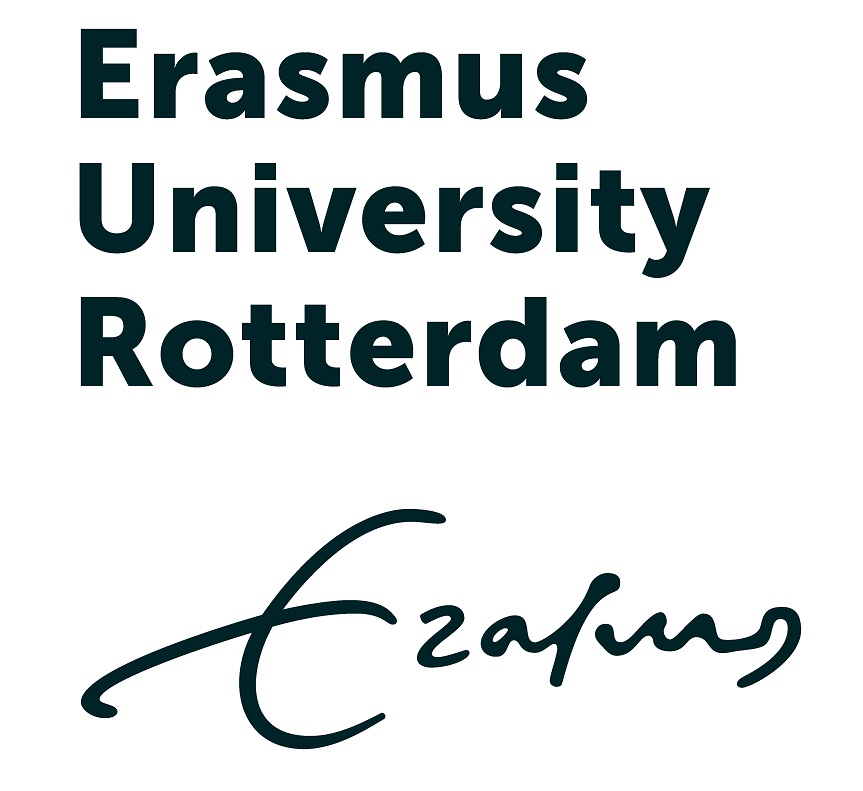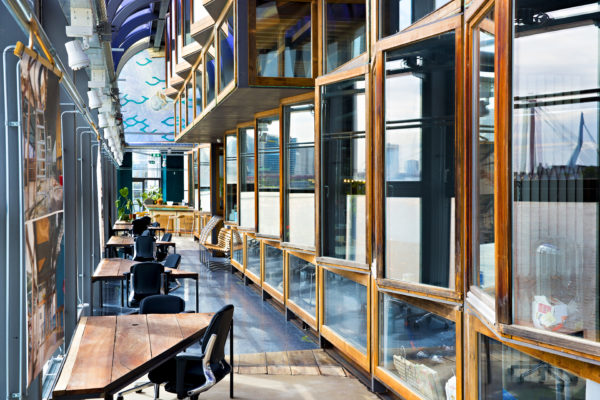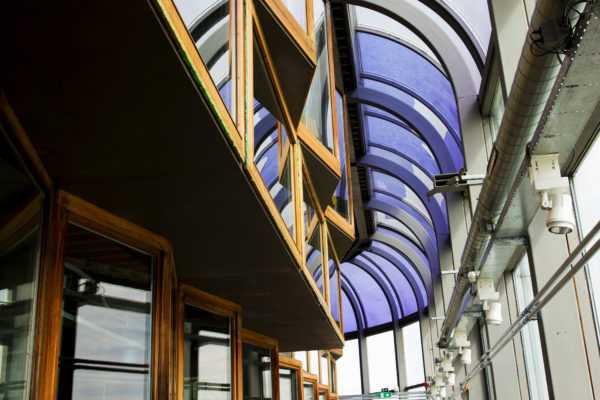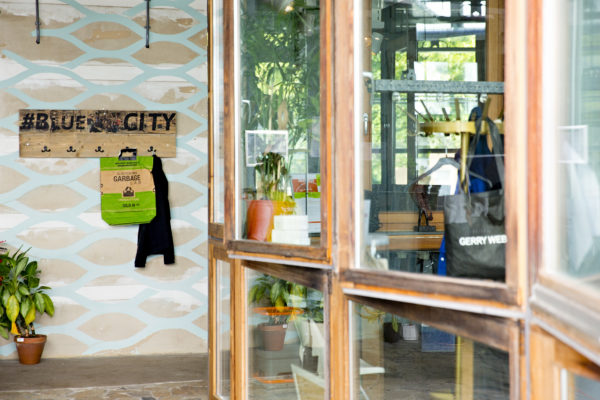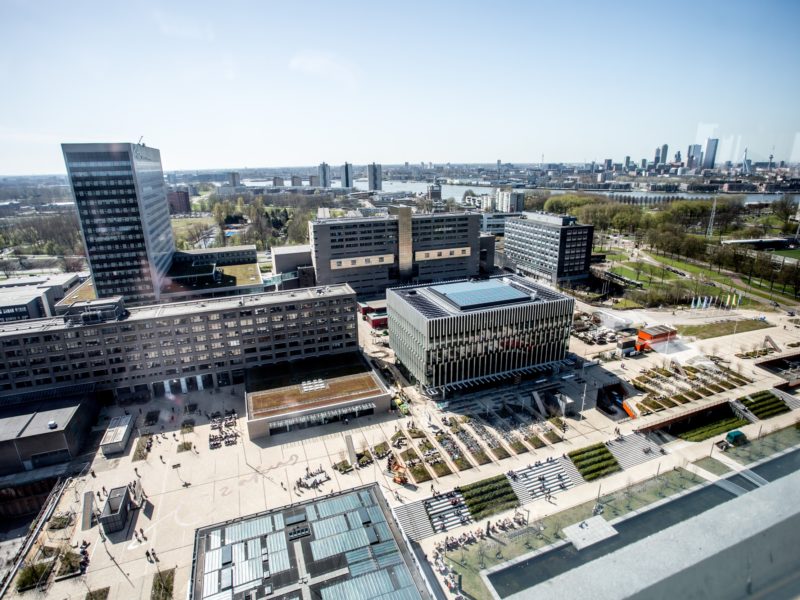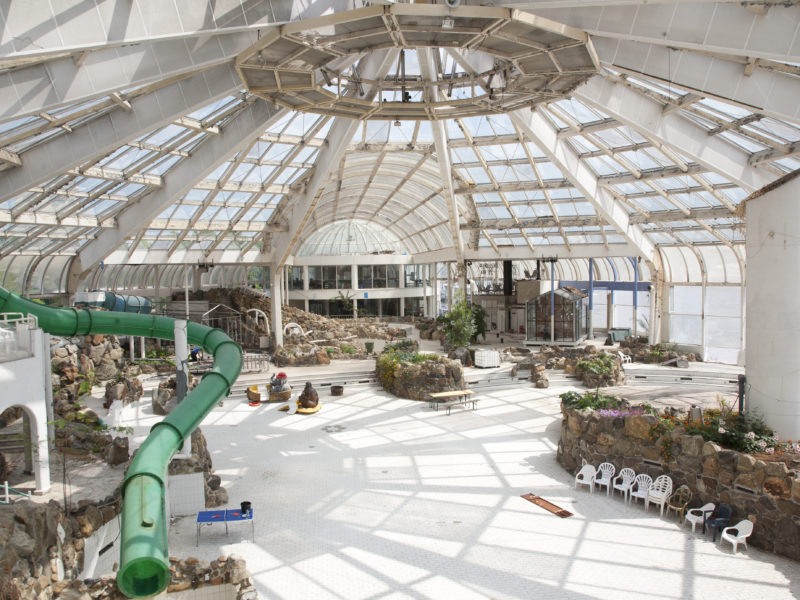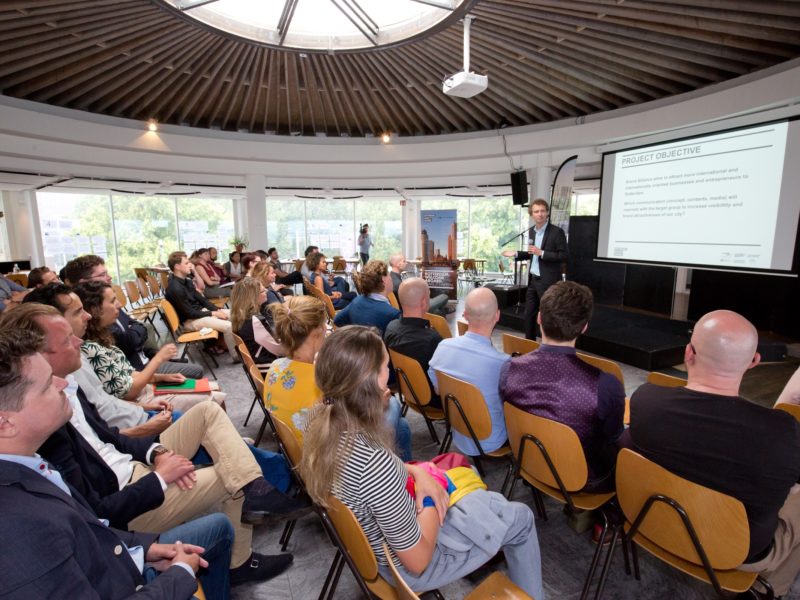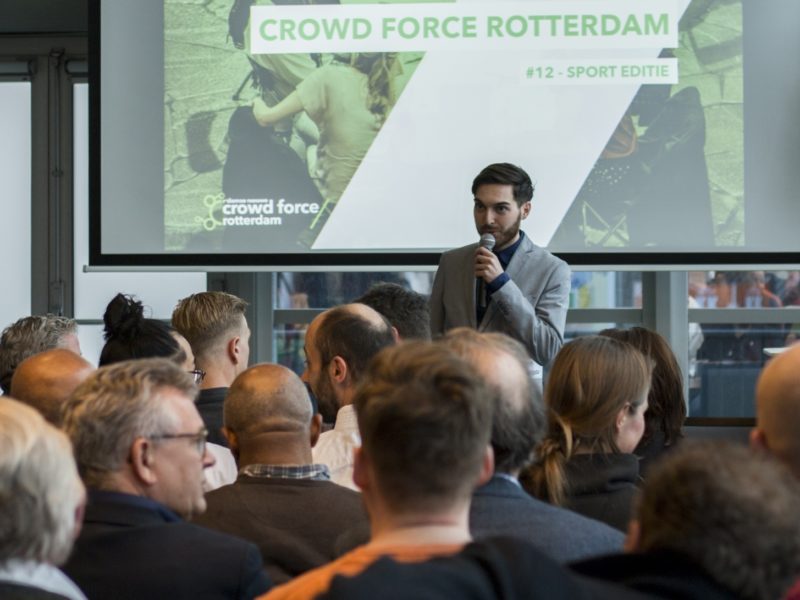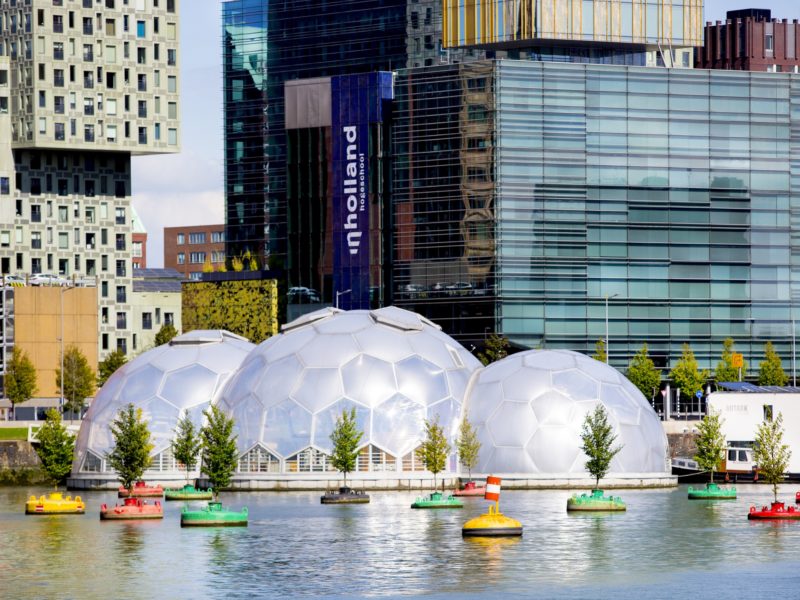How do you get pupils interested in the circular economy? They all know about waste, but most of them don't know that you can use it as a raw material by changing production methods. The time has come to bring two Rotterdam experts together. The Wetenschapsknooppunt (Science Hub) at the Erasmus University is offering free classes to the city under the heading 'Science meets You'. In March, 125 pupils from junior secondary education in the Rotterdam region visited BlueCity, where transition scientist Derk Loorbach held a presentation on the circular economy.
The entrepreneurs of
BlueCity are striving to achieve a waste-free chain of production and consumption, and they also want to contribute to awareness and change attitudes and behaviour – and what better place to start than in education. Erasmus University, in collaboration with others, is also intent on increasing sustainability in management, education and research. BlueCity is therefore a logical partner for this type of collaboration; a vibrant, circular mini-city full of sustainable start-ups on the doorstep.
The Circular Economy
The Wetenschapsknooppunt of Erasmus University Rotterdam has been promoting science in the classroom for thousands of children since 2010, and this initiative now includes
BlueCity. Thanks to this approach, children come into contact with scientific practice in a lively and accessible manner. They acquire research skills and learn to develop an exploratory mindset. This time the subject was converting waste into a valuable raw material within the circular economy, with the emphasis on why this is becoming increasingly important in today’s society.
During Derk Loorbach's lecture, pupils are thoroughly informed about waste and the linear and circular economies: 'I do not try to simplify the story, and that works well. The pupils generally come up with good questions'. Loorbach explains the difference between the current linear system and the circular system; the pupils learn that it is important to close circular cycles, and are told how BlueCity achieves that. The linear system of a product chosen by the pupils themselves is then mapped out. The curriculum also includes research skills such as critical thinking, and one of the assignments therefore reads: 'Question the set-up of a linear production process by realising how easily products are currently disposed of as waste. Try to devise an alternative'. Loorbach draws on the pupils' own living environment when giving examples: 'Just think about the electric car, flying and the consumption of meat; how do you see their future?'
[caption id="attachment_23820" align="alignnone" width="800"]
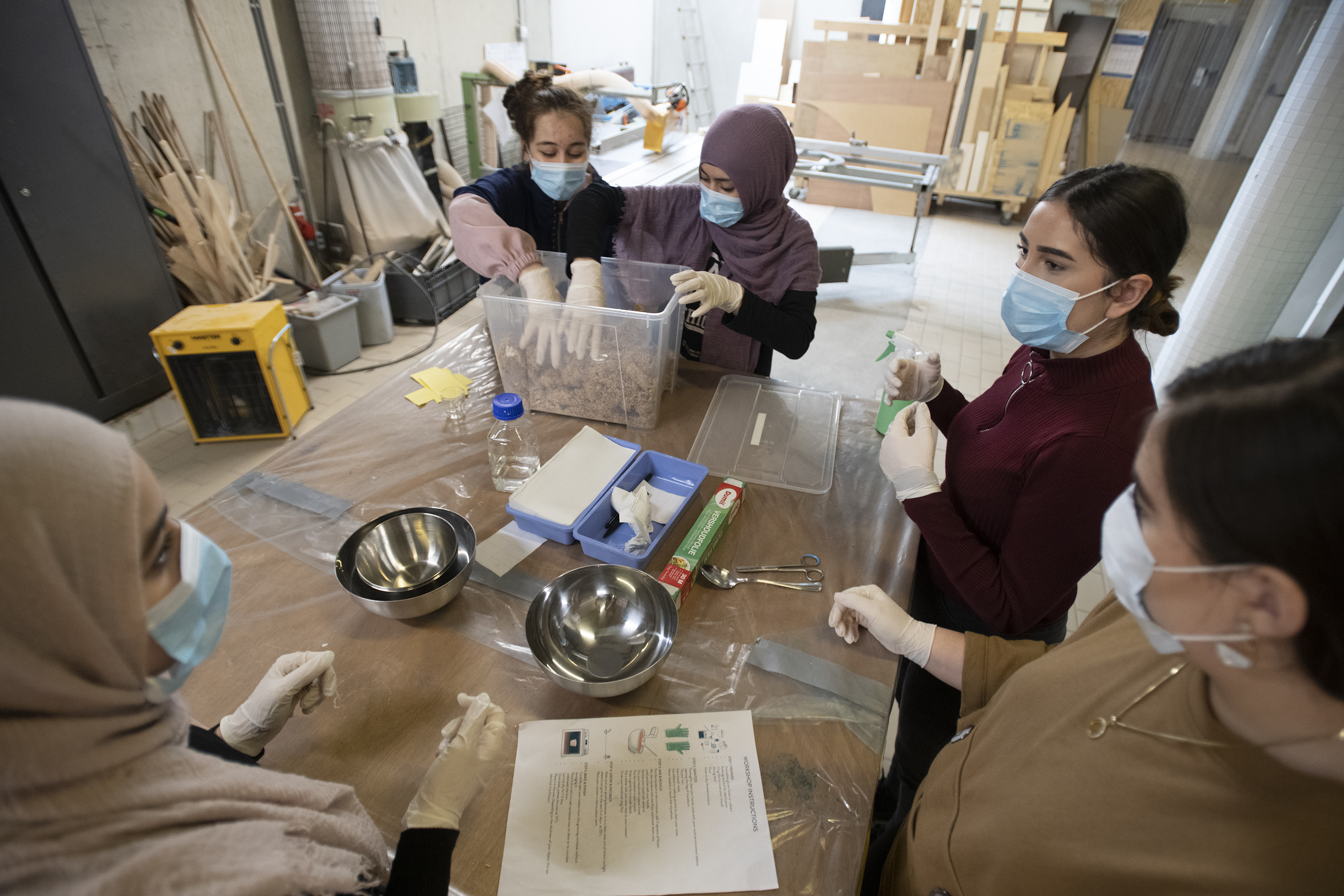
Students learn that it is important to close the cycles, and how that happens in BlueCity.[/caption]
So it's alive?!
During the guided tour of Blue City, the pupils are introduced to products made from waste, for example, fruit leather. Tour guide Nienke Binnendijk, business developer at BlueCity, explains how such circular businesses come into being: 'The makers of fruit leather started experimenting with mangos a few years ago. You can do the same with any kind of fruit'.
The pupils get to work in a workshop; making a bio-degradable pin board or flower pot themselves using fungi. Their curiosity is aroused and they come up with some critical questions such as 'How long does the decomposition of a product take?' or 'Where was this done first?’, and 'If you wipe off the disinfectant spray with a cloth, doesn't infection start anew?'
More than a hundred pupils go home enriched by their experience. At this particular venue in the former Tropicana on the Meuse they discovered the world of fungi; a bit dirty perhaps, but very interesting... The experience can be briefly summarised in a question from one of the pupils: 'So it's alive?!'
 Students learn that it is important to close the cycles, and how that happens in BlueCity.[/caption]
Students learn that it is important to close the cycles, and how that happens in BlueCity.[/caption]

